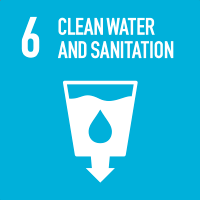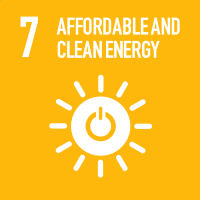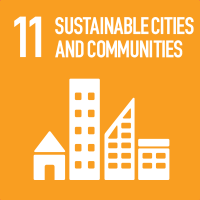Studying at the University of Verona
Here you can find information on the organisational aspects of the Programme, lecture timetables, learning activities and useful contact details for your time at the University, from enrolment to graduation.
Study Plan
This information is intended exclusively for students already enrolled in this course.If you are a new student interested in enrolling, you can find information about the course of study on the course page:
Laurea magistrale in Artificial Intelligence - Enrollment from 2025/2026The Study Plan includes all modules, teaching and learning activities that each student will need to undertake during their time at the University.
Please select your Study Plan based on your enrollment year.
1° Year
| Modules | Credits | TAF | SSD |
|---|
| Modules | Credits | TAF | SSD |
|---|
| Modules | Credits | TAF | SSD |
|---|
1 course among the following2 modules among the following (1st year: Knowledge representation, Natural language processing, HCI Intelligent interfaces - 2nd year: AI & Cloud, Visual intelligence, Statistical learning - 1st and 2nd year: Computer Vision & Deep Learning)2 modules among the following (1st year: Knowledge representation, Natural language processing, HCI Intelligent interfaces - 2nd year: AI & Cloud - 1st and 2nd year: Computer Vision & Deep learning)2 courses among the following (A.A. 2023/24: Complex systems and Network Science not activated)Legend | Type of training activity (TTA)
TAF (Type of Educational Activity) All courses and activities are classified into different types of educational activities, indicated by a letter.
Reinforcement learning and Advanced programming for AI (2023/2024)
Teaching code
4S010675
Credits
12
Language
English
Scientific Disciplinary Sector (SSD)
ING-INF/05 - INFORMATION PROCESSING SYSTEMS
Courses Single
Authorized
The teaching is organized as follows:
Advanced programming for AI
Reinforcement Learning
Learning objectives
The reinforcement learning module introduces students to reinforcement learning and planning under uncertainty. In particular, it is focused on the design of algorithms that enable machines to learn based on reinforcements, hence from partial, implicit and delayed feedback obtained by repeatedly interact with the environment or users. At the end of the course, students will have to demonstrate that they have acquired the ability to i) tackle sequential decision problems with reinforcement learning techniques, ii) identify and apply the most effective and efficient algorithms to solve specific sequential decision problems, iii) designing new reinforcement learning algorithms. In particular, the acquired knowledge concerns advanced techniques for the resolution of Markov Decision Process (eg, research with Monte Carlo methods), bandit problems, model-based and model-free reinforcement learning, Bayesian reinforcement learning, deep reinforcement learning, and advanced reinforcement learning techniques (safe policy improvement, partially observable environments, hierarchical reinforcement learning, imitation-based learning, inverse reinforcement learning, and meta-learning). The Advanced Programming for AI module aims to provide information on programming languages, tools and software architectures that have emerged in the field of software systems (SW) based on artificial intelligence. The goal is to provide students with an understanding of the specific characteristics and key principles underlying various languages and advanced tools and to solve some classes of AI problems. Students will acquire programming skills in Python, will be able to write programs to solve typical problems and to assemble software modules, manage models, patterns, and perform the deployment of those modules on cloud platforms, with particular focus on interoperability and explainability.
Prerequisites and basic notions
Being a first year, first semester exam, there are no specific prerequisites other than those required for access to the degree course.
Program
REINFORCEMENT LEARNING
- Markov Decision Process
- Research with Monte Carlo methods
- Bandit problems
- Model-based and model-free reinforcement learning
- Bayesian reinforcement learning
- Deep reinforcement learning
- Advanced reinforcement learning techniques
--- safe policy improvement
--- partially observable environments
--- hierarchical reinforcement learning
--- imitation-based learning
--- inverse reinforcement learning
--- meta-learning
ADVANCED PROGRAMMING FOR AI
Bibliography
Didactic methods
Lectures, laboratory experiences, exercises.
Learning assessment procedures
To pass the exam, students will have to demonstrate that they: - understand the principles behind how reinforcement learning and methods for programming modules based on artificial intelligence work - be able to expose concepts of reinforcement learning and programming of modules based on artificial intelligence in a precise and organic way without digressions, - knowing how to apply the acquired knowledge to solve application problems presented in the form of exercises, questions and projects.
The exam consists of an oral test on the topics covered in the course. In case of high participation, the oral exam will be replaced by a written exam with equivalent questions. The questions may concern both the theoretical part and the exercises carried out in the laboratory.
Evaluation criteria
Theoretical and applied knowledge of the techniques taught in the course; critical ability to select techniques based on the problem; ability to use the techniques taught in the course.
Criteria for the composition of the final grade
The final grade is represented by the arithmetic average of the grades of the two parts (RL / Advanced programming for AI) of the course.
Exam language
Inglese (English)




